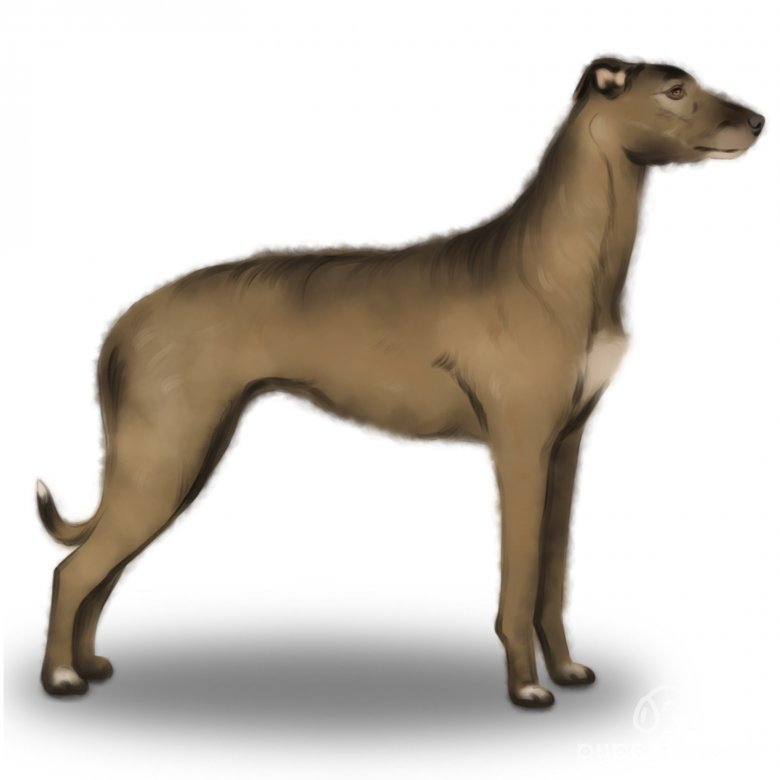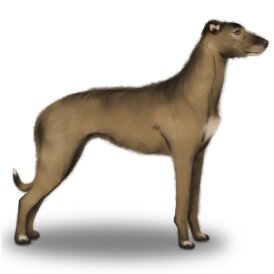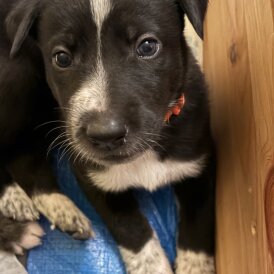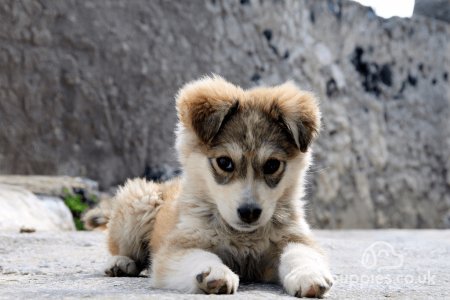Why Lurchers are great
A gorgeous mix of intelligence, elegance, agility and affection, the Lurcher never fails to capture hearts and impress owners. With many cross breeds allowing the Lurcher breed to expand, there are many traits that owners are able to choose from to get their ideal Lurcher.
Some highlights:
- The lurcher is an extremely intelligent breed, making them quick learners and easily trainable
- This breed is nimble and agile, performing well in agility competitions
- Lurchers are also able to work, combining their stealth and scenting ability to hunt small animals, regularly being used as pest control.
- Although Lurchers require a large amount of exercise, they are also happy to sleep all day (as long as they’ve been able to let off some energy during the day).
Things to consider when looking at Lurchers for Sale
One of the main points to consider is that Lurchers are active and agile, whilst also being loving and attention-seeking. There must be a balance between their work and love, much like humans, requiring both care and exercise. However, they do not always fit in instantly with their new home. At the moment, they are the most common breed of dog in Ireland to be put into adoption centres, as many find that they cannot call their dog back, and often can’t take them off the lead on walks and in open places.
Some downsides to the Lurcher:
- Lurchers can and will jump up to 6 feet high, so they are often found wandering around after successfully escaping
- They need a large amount of exercise, a minimum of 1 hour a day.
- Lurchers struggle separation anxiety and are not good at being left outside alone during the day.
History of Lurchers
Lurchers have always been bred as a working crossbreed, combining a greyhound with a terrier, herding breed or large scent hound. These crosses were chosen to elevate intelligence and hunting ability, creating the Lurcher as a sighthound. Common crosses include Greyhounds, Whippets, Salukis, Scottish Deerhounds and Irish Wolfhounds with Border Collies, Bedlington Terriers or Bull Terriers. Lurchers excel at chasing small furry animals, such as rabbits, hares and foxes, even when they have not been taught how when they were younger. In more built-up areas, they can often mistake squirrels and smaller dogs as being something to hunt. They are popular in the UK and rarely found in the US.
Appearance
How big is the Lurcher?
Lurchers usually range from 68 - 76 cm at the shoulder. This depends on which breeds were bred together, and how large their parent’s both were.
How heavy is a Lurcher?
Lurchers are usually 15 – 45 kg, normally depending on the crossbreed that the greyhound was bred with.
What Colour is the Lurcher?
Due to the Lurcher being a crossbreed, they are often seen to be a range of colours, including grizzle (where the coat does not seem to have a distinct pattern, but more blended together until you look closer. This design can mix black hair with tan or brown hairs, or white and black giving it a grey look). Other colours a Lurcher could be include pure black, or black and tan.
Temperament
Do Lurchers make good guard dogs?
As Lurchers are calm, non-defensive and social dogs, they rarely make good guard dogs. They occasionally bark but are usually quiet and calm, preferring to be laid back in a comfy bed rather than be on edge at the door!
Are Lurchers easy to train?
Lurchers are extremely intelligent, with training being valuable at as little as 8 weeks. Even when little, they take in large amounts of new information and can be trained very quickly. However, they do need early and frequent socialization to prevent possible suspicion towards strangers from arising in the future. It is important to note that leaving training too late can lead to a headstrong and difficult dog at a later age. Weekly training meets are recommended when you first get your Lurcher puppy as it is imperative that they learn respect towards their owner, otherwise there will be bigger problems in the future.
Are Lurchers playful?
Lurchers tend to be very playful with both humans and other dogs, adoring company and are very loyal, making them perfect for families with young and old children.
Are Lurchers good with other pets?
Lurchers are usually good with pets, but their hunting tendencies can be triggered with a small dog or cat and can often cause them to chase the smaller pet at first. However, to prevent this, early introduction is important. Many families that get a Lurcher as a puppy make sure they grow up directly with the other animal, and they grow to be unphased and enjoy the other’s company.
Can I leave a Lurcher Alone?
Like many other breeds, Lurchers are not comfortable at being left alone. If there is another dog or animal with them, they are more likely to be happy at being left, but even then they should not be left for long periods of time. This breed is not for people that work day jobs and would be leaving their Lurcher alone.
Do Lurchers like water?
Lurchers rarely tend to dive into a large body of water out of pure joy much like other hunting or retrieving breeds like the Labrador. However, they do like to paddle in the shallow areas and occasionally go for a full swim. They prefer to run across the beaches at full speed rather than go into the water
Health
How long do Lurchers live?
Lurchers, if cared for in the right way, can live up to the old age of 15, but this varies between 10-15 years.
How much exercise does a Lurcher need?
A Lurcher needs a very high amount of exercise in order to burn off some energy and stay fit. They have a very high amount of stamina, but this can vary depending on which type of cross the Lurcher is.
What are Lurchers Common health issues?
Lurchers on average have a decent level of health throughout their lives. However, some common issues are seen in this breed, mainly stemming from the speed in which Lurchers run. The owner should always be aware of the damage that may arise if there is excessive exercise given to Lurchers.
- Gastric Torsion
- Torn toenails
- Foot or muscle injuries
- Heat stroke & Heat exhaustion
- Eye Diseases
- Lurchers are mean to be very lean and thin dogs and putting too much weight on can damage their joints.
Care
How much space do I need for a Lurcher?
It is advised that this breed is given access to a rather large garden or field area to let them play and run around in when the need. However, they are extremely agile and can jump up to 6 feet high, so having a surrounding fence is imperative if you don’t want to lose your Lurcher.
What should I feed my Lurcher?
Although there is not a specific outline of what Lurchers should eat, it is the owner’s responsibility to not let them gain excessive weight and train them, so they don’t beg at the table. When they are little, like all puppies, they can be somewhat destructive, chewing on fluffy cushions as if they are a soft toy. Due to their highly sensitive scent detectors, they are also very good at getting to the meals that were originally prepared for the family, not the dog.
How much grooming do Lurchers need?
Lurchers can either have a sleek smooth coat or a rougher, wire coat. The wire coats require slightly more grooming, with weekly brushing being advised to maintain softness and cleanliness.
Do Lurchers shed?
Depending on the cross, some lurchers may shed a lot, whilst others shed very little, if at all. It is difficult to tell this when they are just a puppy though, so it would be wise to think about what would be best for the household either way.
Average costs
How much does it cost to keep a Lurcher?
As a rough guide in pricing:
Cost to buy: roughly £600- £800 for a well-bred Lurcher puppy
Other costs (Vet, Food etc): £70- £100 per month
Specific Buying Guide
You can read our general buying guide here (
/advice-on-buying-a-puppy/), with the most important thing being going to view your Lurcher Puppy, seeing it with its mother, and checking the quality of the breeder.
More specifically, here is some Lurcher puppy buying advice:
- It is very important to remember that Lurchers are a crossbreed, and it is very difficult, almost impossible, to see which traits (including personality, appearance, and exercise preferences) will be inherited from the puppy’s parents. Be sure to check the temperaments and tendencies from both parents in order to help you gain an idea of what your Lurcher puppy could be like.
- Due to Lurchers being a very popular breed, there are many scams online that could try and trick you into buying a puppy that doesn’t actually exist. To spot this, look at the price; scams usually place them at a lower price to make potential buyers think they are getting a bargain. Never buy a puppy or even place a deposit down before visiting the litter – this will also help you to choose which puppy you think will fit best into your life. The Lurcher’s popularity will also mean that there could be many unofficial and cruel breeders that would not be breeding the female well, possibly creating health problems with the puppy.
- Instead of looking to buy a brand new Lurcher puppy, have a look online at homes and shelters, as there may be the perfect puppy waiting to come home to you. Lurchers are very regularly put into homes, both young and old, so it would be worth checking if you could rescue one.
Other reading, Adopting Lurcher Puppies and Rescue Organisations
https://www.greyhoundandlurcherrescue.co.uk/
https://www.lurchersos.org.uk/
https://www.dogstrust.org.uk/rehoming/dogs/filters/~294~~~~n
A big thank you to the following sources who helped to shape this article:
https://www.vetstreet.com/dogs/lurcher
https://www.kentgreyhoundrescue.com/dogs-adoption/lurchers-as-pets/
https://www.paws.ie/things-i-wish-i-knew-adopting-lurcher/
https://www.lurcherlink.org/llink/forum/viewtopic.php?t=2878##targetText=Mine%20four%2C%20or%20a%20combination,hours%20every%20couple%20of%20weeks.
https://greydogtales.com/blog/lurchers-beginners-water-tastes-funny/















